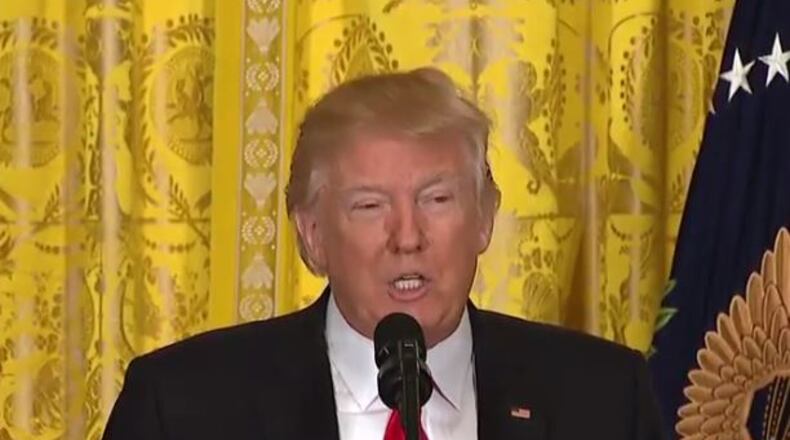"We're going to do more with less," Mr. Trump added. "The government must learn to tighten its belt."
White House officials did not have any examples to give of where the President would cut spending, other than in foreign aid.
"We don't want to provide specific agency reductions, but most federal agencies will see reductions," an official with the Office of Management and Budget told reporters on a conference call.
"We're looking at unauthorized programs, we're looking for where there is duplication, where consolidation needs to occur," the official said of possible cuts.
The $54 billion addition to the military budget would put defense spending at $603 billion, while non-defense discretionary spending would shrink to $462 billion.
While Democrats were outraged by the extra money for defense, the top two Republicans in the Congress on defense matters said the plan didn't do enough.
"House Armed Services Committee Chairman Thornberry and I agree a defense budget of $640 billion in required," said Sen. John McCain (R-AZ).
In remarks this morning at the White House, the President said his budget increases would focus on security.
"My budget also puts America first," the President told the nation's Governors at the White House.
In the same remarks, the President also touted his promise to repeal and replace the Obama health law, but he seemed to hint again that the GOP has still not arrived at a final plan.
"I have to tell you, it's an unbelievably complex subject," Mr. Trump said.
"Nobody knew that health care could be so complicated."
About the Author
